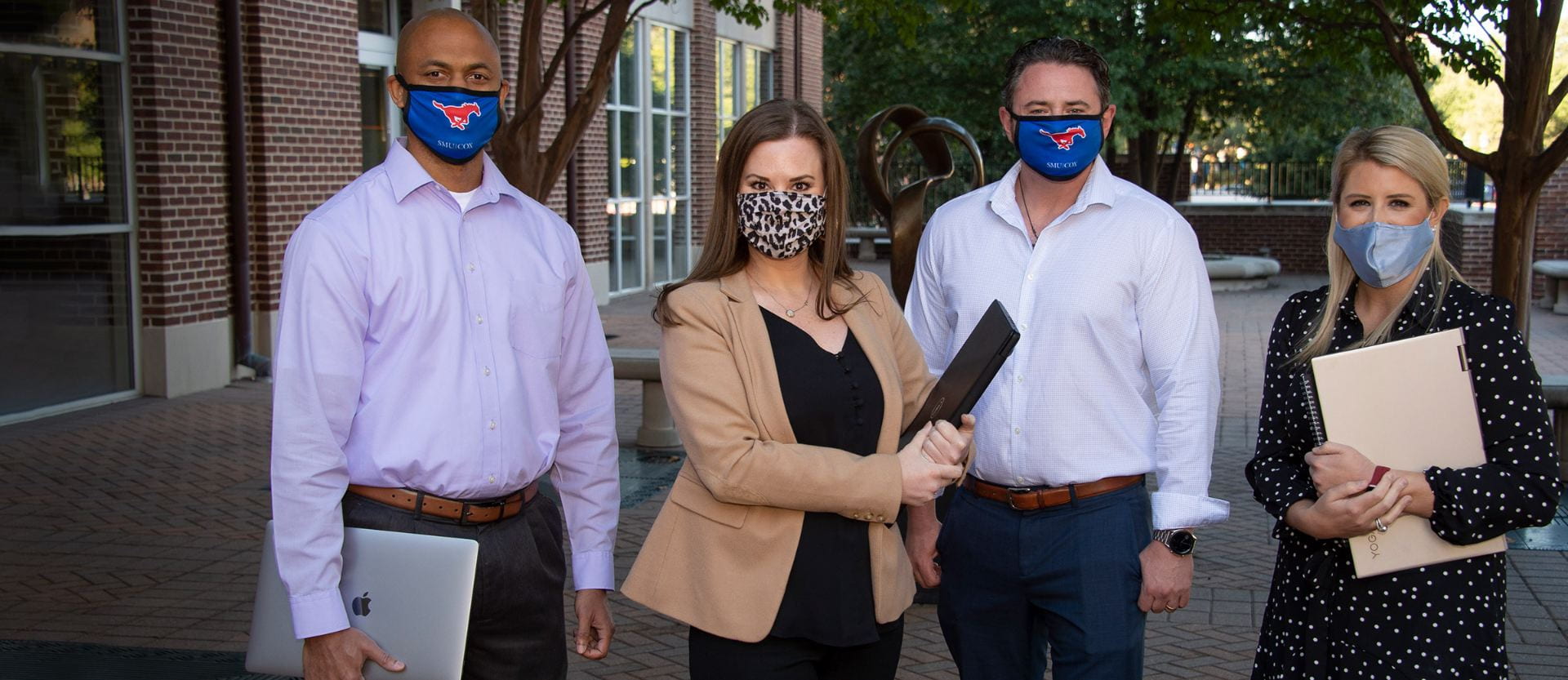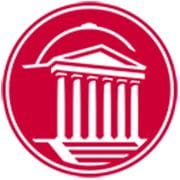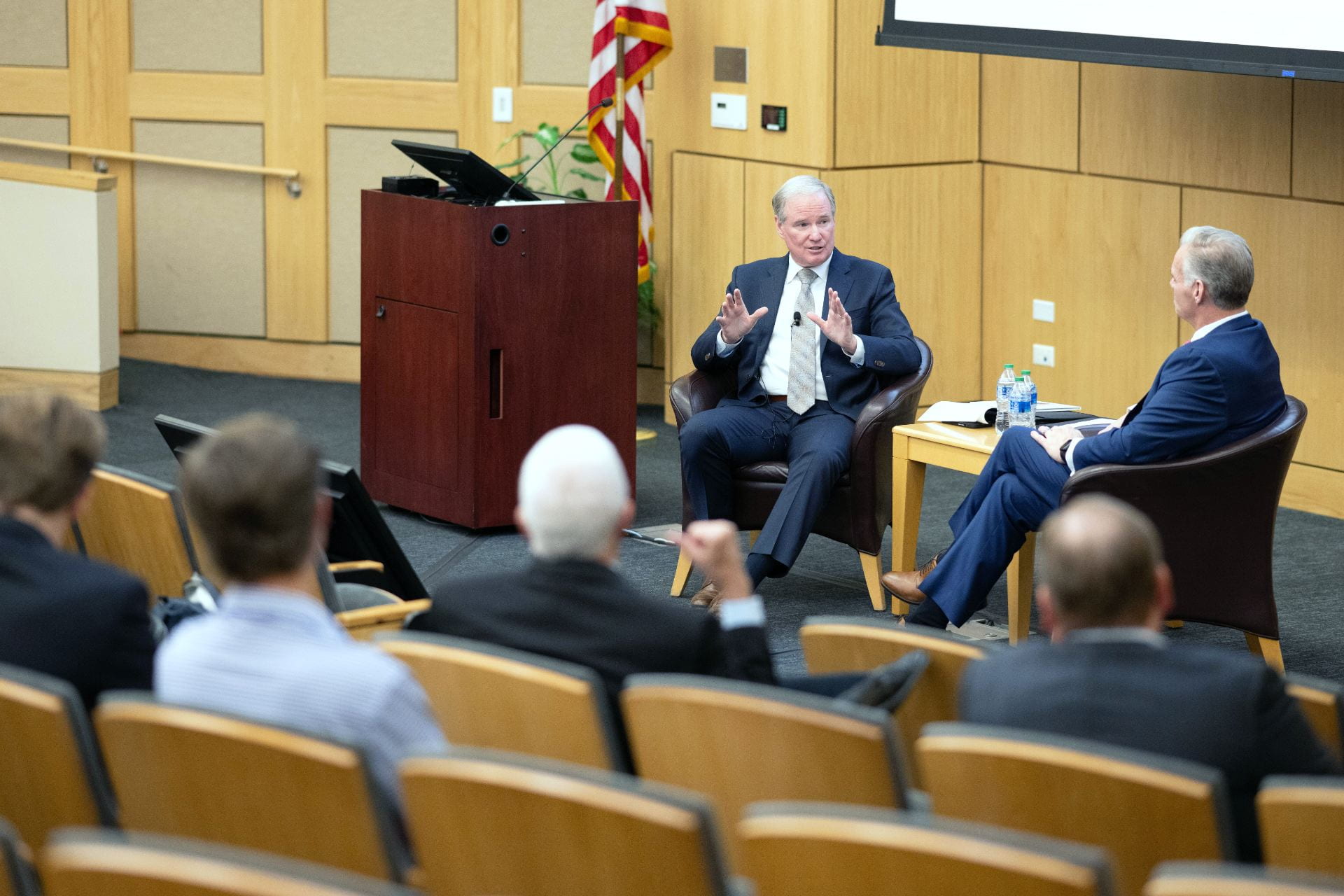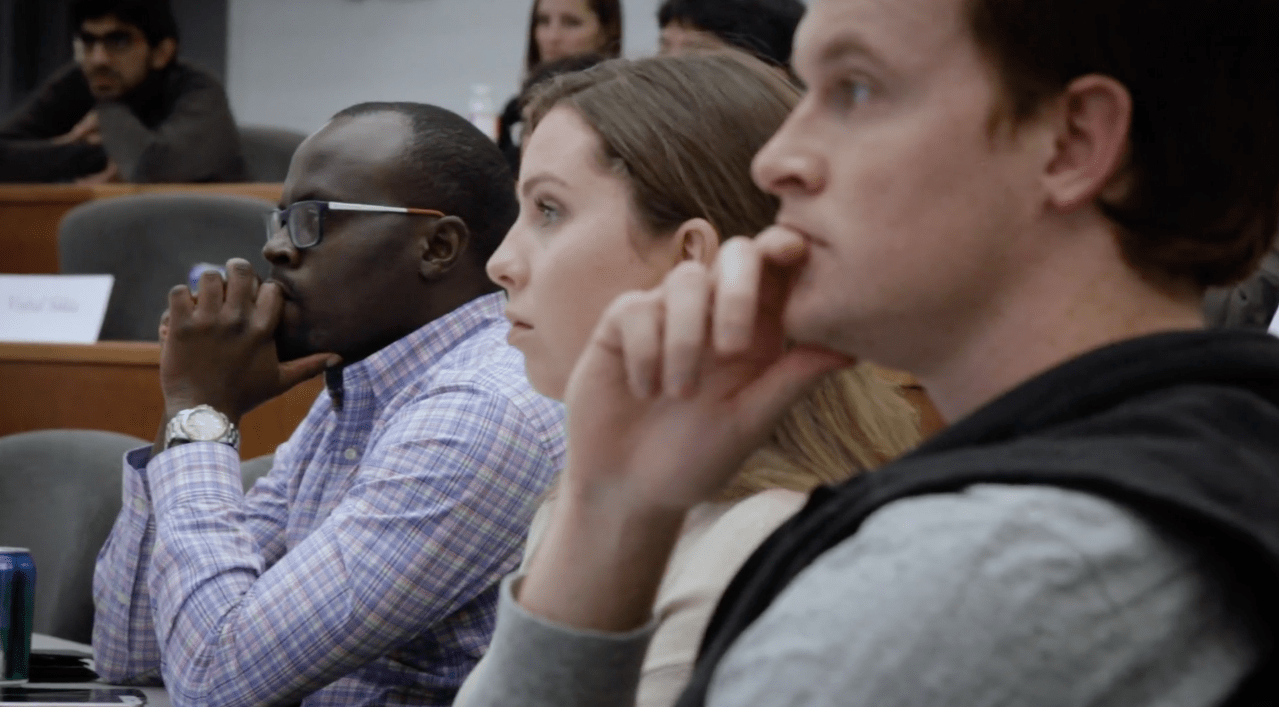Two years ago, senior faculty members and administrators at the SMU Cox School of Business began to redesign its longtime curriculum, developing what would become the NextGen Cox Curriculum. At the time, they couldn’t have imagined the business environment that awaited in the fall of 2020 when students would be first introduced to the newly expanded and enriched curriculum.
They knew that the way the world does business was changing and would continue to change. And they knew that the corporate leaders of tomorrow would need to be prepared for even the most unanticipated disruptions — for instance, a global pandemic that’s reshaped every aspect of our lives.
The Cox School recognized then, and recognizes now, that it is readying MBA students not only for their first job, but also for their next 10 jobs — that, considering the rate of change in the business world, graduates should be prepared for careers that don’t even exist yet. It recognized that MBA graduates should be not just good employees but great leaders — not just “job-ready,” but “future-prepared.”
Successful businesses need to innovate. So do business schools. There is no “one set time” when a school should update its curriculum, says Cox School Dean Matthew B. Myers.
“It has to occur continuously, being careful not to follow fads. This is why our strategic corporate partners are so critical for our success: We can see changes in market needs in real time, [helping us] lead from the front in curricular innovation,” Myers says. “The NextGen Cox Curriculum prepares our graduates to be flexible and resilient, leading proactively in what is sure to remain a very volatile world.”
The Cox School surveyed its corporate partners to determine what qualities MBA graduates should have to be successful. The answers were consistent: Organizations need leaders “who embrace innovation, adaptability and critical thinking, as well as moral character, vision and tenacity,” says Shane Goodwin, associate dean for Cox graduate programs and executive education. “Cox graduates typically possess these qualities, but to maximize knowledge and strength, we’ve grounded the NextGen Cox Curriculum in three foundational pillars: leadership, analytics and experiential learning.”
As SMU Cox marks its centennial and looks to its next 100 years, it is poised to turn new generations of MBA graduates into business leaders. This cutting-edge curriculum combines relevant hands-on experience and rigorous instruction, preparing graduates to make an immediate — and lasting — impact.
“We want to make sure we’re encouraging that intel- lectual curiosity and drive. We’re proponents of lifelong learning,” Goodwin says. “We want to ensure that our MBA graduates have technical capabilities, leadership compe- tencies and meta-skills that last a lifetime.”
The Impact of Leadership
Leadership is famously hard to define, but most of us know it when we see it. And we see it every day, both strong and weak examples.
“If months of dealing with the uncertainty of COVID-19 have taught us anything, it is that strong, flexible, visionary leadership is critical,” says Goodwin.
Good leaders aren’t born. The balanced behaviors and competencies that make a leader effective — including tenacity and a capacity for critical thinking — can be learned, says associate professor Marcus Butts, chair of the SMU Cox Management and Organization department. “The foremost role of a leader is to inspire,” Butts says. “We focus on identifying, nurturing and practicing leadership across contexts, rather than espousing an overly simplistic framework or just categorizing people and personalities.”
In the classroom, the NextGen Cox Curriculum considers the micro and macro levels of leadership. For example, the course Leading Teams and Organizations develops a leader’s potential and their ability to inspire individuals (micro), while the course Organizational Behavior: Managing and Leading People covers motivating larger groups toward organizational goals (macro). Additional courses focus on other unique aspects of leadership, including the especially timely Global Leadership in a Complex World and Organizational Innovations and Change by Design, which Butts says explores the process of “revolutionary” ways of doing business.
A newly formed Cox Leadership Council is directing initiatives in and out of the classroom, while the new Cox Leadership Academy develops senior executives at the Cox School’s corporate partners.
Meanwhile, beyond credited courses for graduate students, the well-established SMU Cox Business Leadership Center (BLC) continues to prove, now more than ever, how fundamental leadership is to the School’s MBA academic offerings.
“The NextGen Cox Curriculum prepares our graduates to be flexible and resilient, leading proactively in what is sure to remain a very volatile world.”
Cox School of Business Dean Matthew B. Myers
At the BLC, MBA students can continue to hear directly from C-suite executives at speaker series, get direct practice through experiential learning and practical application programs and build applied skills through seminars on real-world business issues with leaders from companies such as Coca-Cola, American Airlines and The Walt Disney Company.
The Edwin L. Cox Business Leadership Center was founded 30 years ago, part of benefactor Edwin L. Cox, Sr.’s vision to help MBA students learn many of the same qualities in demand among corporate leaders now, says Paula Strasser, the center’s executive director as well as executive director of the BBA Business Leadership Institute. The center continues to focus on critical thinking and adaptability. The approach to teaching intellectual curiosity and versatility has been heightened and expanded to allow students to meet the needs of a constantly evolving marketplace.
“[Thirty years ago], you were a financial manager, and that’s what you did. You could be an exemplary CPA sitting in a cubicle in an office,” Strasser says. “Those days left long ago. Now employers want leaders who can be cross-functional and manage global teams.”
The NextGen Curriculum is designed to expose students to an array of applications and experiences, fusing the academic and the practical.
“This brings thought leadership out of the classroom and into the boardroom, which is one of our goals at Cox,” Butts says.
The Science of Business
“Employers want the engine and the transmission,” says Jason Rife, executive director of Cox’s Career Management Center and graduate admissions.
In a business environment increasingly driven by radical new technologies, the engine is analytics. That’s why the U.S. Department of Labor forecasts the creation of more than 850,000 new science, technology, engineering and math jobs by 2028 — plus nearly 200,000 job openings in STEM management by 2024 — and why the average median salary for a STEM job is twice that of a non-STEM occupation. It’s also why SMU Cox has made STEM instruction a foundation of its curriculum.
“If you go to work and you solve problems and figure out how to apply what you know — that’s who succeeds. That’s who companies want to hire.”
Kate Hoedebeck, Business Leadership Center director
To that end, the Cox School has increased the number of required credit hours in STEM courses and developed a rigorous process and methodology to meet the highest standards for STEM learning. But businesses need leaders who not only understand data and analytics but also have the organizational skills to translate that understanding into meaningful action. (There’s your transmission.)
“People often think of graduate education as divided between people skills and concrete analytical skills. However, very few classes are solely one or the other,” Butts says. “In finance, for example, the ethical ramifications of decisions are often highlighted. Similarly, analytics courses underscore the importance of decision-making with data just as much as discussing the ‘how to’ behind what to do with the data.”
On the other hand, courses in strategic human capital teach students how to make decisions involving people that are grounded in supporting data as well as human emotion. Science and business are complementary, not contradictory.
The School of Experience
We teach ourselves by doing it ourselves, and experiential learning runs through every aspect of the NextGen Cox Curriculum. In this way, students are introduced to the same kinds of ambiguous and unstructured challenges they’ll someday face as real- world business leaders. Even in failure — and there are always failures — students learn resiliency and how to respond with a new iteration, a new strategy. Through coursework and various opportunities, students are given the freedom to practice, fail and learn.
As an example, Butts cites the Global Leadership Program, a longtime staple of the Cox graduate experience that gets students working with social entrepreneurs, nongovernment organizations and companies from around the world. Recently, students in the program worked on a virtual project with Microsoft Brazil, a program that has adapted to a time of social distancing without losing its international outlook.
“Finding ways to understand and apply decisions across the globe while facing challenges of telework represents cutting-edge considerations for the large majority of companies,” Butts says. “In this way, the GLP is a case study in what new Cox graduates will deal with in their jobs, and we’re confident they will be best prepared because of that experience.”
Experiential learning has long been a critical offering of the BLC, where graduate students interact directly with executives and sign up for various hands-on programs.
“It’s a faster, better way to learn,” says BLC Director Kate Hoedebeck. “It’s one thing to sit back and be told how things are, take notes on it and put it in your notebook and go off to a job and say, ‘What was that I learned?’ It’s another thing when you can apply it in a situation right
then and there to see how it really works. It’s real-time application of knowledge and solving problems.”
Research shows that people of the millennial generation and younger benefit from experiential learning, a particularly salient fact as millennials make up an increasingly large chunk of the workforce, with Generation Z right on their heels. It’s a generational change, in more ways than one.
“It’s not just that the [NextGen Cox Curriculum] fits the way millennials work, it fits the way businesses run,” Hoedebeck says. “You can go to work and wait for somebody to tell you what to do, and you’re going to sit in that cube for a really long time. If you go to work and you solve problems and figure out how to apply what you know — that’s who succeeds. That’s who companies want to hire.”
Two years ago, when the Cox School began reimagining how best to prepare tomorrow’s leaders for the future, launching the NextGen Cox Curriculum in the middle of a pandemic was not part of the plan. Nonetheless, doing so has underscored to the School and its students the importance of being able to apply what they know. 2020 has tested everyone’s adaptability and resiliency. As the year draws to an end, Cox students, and the Cox School itself, move into the future — positioned for success and ready for change in an ever-changing world.









